Advertisements
Advertisements
Question
In the figure, given below, AD ⊥ BC.
Prove that: c2 = a2 + b2 - 2ax.
Solution
Pythagoras theorem states that in a right-angled triangle, the square on the hypotenuse is equal to the sum of the squares on the remaining two sides.
First, we consider the ΔABD and applying Pythagoras theorem we get,
AB2 = AD2 + BD2
c2 = h2 + ( a - x )2
h2 = c2 - ( a - x )2 ......(i)
First, we consider the ΔACD and applying Pythagoras theorem we get,
AC2 = AD2 + CD2
b2 = h2 + x2
h2 = b2 - x2 ......(ii)
From (i) and (ii) we get,
c2 - ( a - x )2 = b2 - x2
c2 - a2 - x2 + 2ax = b2 - x2
c2 = a2 + b2 - 2ax
Hence Proved.
APPEARS IN
RELATED QUESTIONS
Side of a triangle is given, determine it is a right triangle.
`(2a – 1) cm, 2\sqrt { 2a } cm, and (2a + 1) cm`
In the given figure, AD is a median of a triangle ABC and AM ⊥ BC. Prove that:
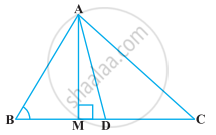
`"AC"^2 = "AD"^2 + "BC"."DM" + (("BC")/2)^2`
Prove that the sum of the squares of the diagonals of parallelogram is equal to the sum of the squares of its sides.
Find the side and perimeter of a square whose diagonal is 10 cm.
In ΔABC, Find the sides of the triangle, if:
- AB = ( x - 3 ) cm, BC = ( x + 4 ) cm and AC = ( x + 6 ) cm
- AB = x cm, BC = ( 4x + 4 ) cm and AC = ( 4x + 5) cm
In triangle ABC, given below, AB = 8 cm, BC = 6 cm and AC = 3 cm. Calculate the length of OC.
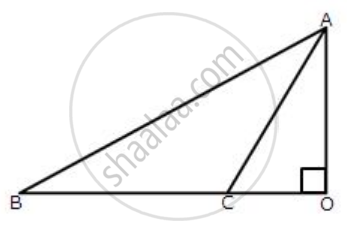
Prove that (1 + cot A - cosec A ) (1 + tan A + sec A) = 2
In the given figure, AD = 13 cm, BC = 12 cm, AB = 3 cm and angle ACD = angle ABC = 90°. Find the length of DC.
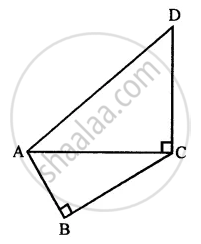
A boy first goes 5 m due north and then 12 m due east. Find the distance between the initial and the final position of the boy.
In the figure below, find the value of 'x'.

Find the Pythagorean triplet from among the following set of numbers.
4, 5, 6
The sides of the triangle are given below. Find out which one is the right-angled triangle?
11, 12, 15
A man goes 10 m due east and then 24 m due north. Find the distance from the straight point.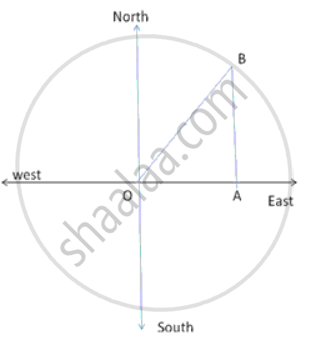
A ladder 25m long reaches a window of a building 20m above the ground. Determine the distance of the foot of the ladder from the building.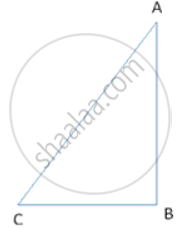
Find the unknown side in the following triangles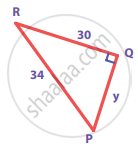
An isosceles triangle has equal sides each 13 cm and a base 24 cm in length. Find its height
In a quadrilateral ABCD, ∠A + ∠D = 90°. Prove that AC2 + BD2 = AD2 + BC2
[Hint: Produce AB and DC to meet at E.]
Prove that the area of the equilateral triangle drawn on the hypotenuse of a right angled triangle is equal to the sum of the areas of the equilateral triangles drawn on the other two sides of the triangle.
Jiya walks 6 km due east and then 8 km due north. How far is she from her starting place?
The foot of a ladder is 6 m away from its wall and its top reaches a window 8 m above the ground. Find the length of the ladder.
